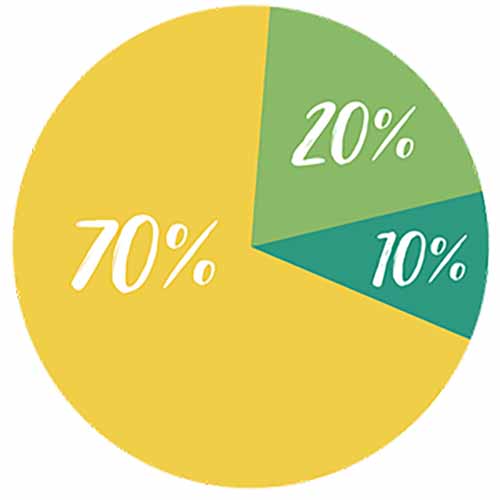How we learn 70:20:10
In a fast changing world, time and attention both in work and outside are under pressure. This inevitably results in less time to spend away from the office for learning and development opportunities. For today’s modern workforce there is a switch from ‘training as an event’ to ‘learning as a collaborative, continuous, connected and community based activity’.
The 70:20:10 Model for learning suggests that individuals obtain 70% of their knowledge from job-related experiences, 20% from interactions with others, and 10% from formal educational events. Hands-on experience (the 70%) is the most beneficial for employees because it enables them to discover and refine their job-related skills, make decisions, address challenges and interact with influential people such as managers and mentors within work settings. They also learn from their mistakes and receive immediate feedback on their performance.

70% of learning is experiential.
It happens through learning on the job, including stretch assignments, practice and independent research.
20% of learning is social.
It happens with and through other people such as co-workers. It also includes mentoring, coaching and feedback.
10% of learning is formal.
It happens through structured training courses and programmes.
Managers should be encouraging this and reinforcing the continuous learning that individuals have every day. Managers should be exploring 90% learning opportunities for their staff outside of the training room and formal learning. This opens up a world of possibilities for staff and reinforces the University’s investment in and support for staff learning and development.
Staff Learning and Development’s core offering works to support the 70:20:10 learning and development model.
